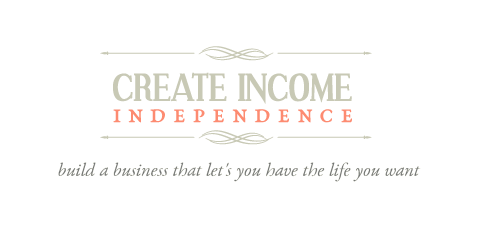
In this post, we look at skills and knowledge that we, as thinking, free people and entrepreneurs, need to acquire. Sovereign people must understand what’s true and discern what’s real. Here are six abilities that help you invest in yourself, your life, and be better as an entrepreneur.
Entrepreneurs wear many hats and must be good at many things. To pull off the complexity of a business these tools will make you sharper, provide competence, and an advantage for success.
To be well informed and aware you need to look at things accurately, increase your expertise, wisdom, and insights, so you can reach your full potential.
When you spend time and energy in education you get rewards beyond mere information. When we look beyond the surface we find that things are not what they seem and it would serve us to look deeper.
Those who want to be free will spend the time to learn and self-educate.
Six Valuable Skills
These six skills can help you to be more aware and astute. These uncommon abilities give you an edge in understanding what you’re really being told, and what is really happening. And since none of these skills are taught in school, it’s up to you to learn them. We give resources for each one, but feel free to do further research.
- Etymology
- Logic
- Grammar
- Legal terms and definitions of words
- Mindfulness and self-awareness
- Second-level thinking
Etymology
Etymology is the study of the origins of words and helps determine the true meaning of our language. Word meanings have been changed through the years to benefit certain people like the Romans, Greeks, and English. This is especially important in history and law, as they have a large impact on our lives and businesses.
To see how words get distorted, study the denotative and connotative meanings. Denotative is the complete meaning applied to the word from the beginning. However, it’s the connotative meaning that adds additional significance, the meaning that has attached to the word over time and is used with the intention of hiding information.
One example is the word “color”. It generally refers to a person’s skin tone or a pigment, such as red, green, etc. However, the etymology shows it means something that is hidden. (Colos, the root of the word means a covering), Here we show an example from the law. “Color of law is not true law, but are the statutes and codes that do not coincide with and are not influenced by the Constitution (which is natural and common law).” It conceals a lack of reality.
By looking at the etymology of a word you can see the true picture. Many times it reveals much about the history and how things have changed.
A deeper understanding of etymology can be found here: The Importance of Etymology in Literacy, History, and Law
Logic
Logic is the study of reasoning and arguments. It teaches you to think clearly and steer away from deception and weak or false arguments.
It helps analyze ideas and understand complex topics to make better decisions, improve your performance, and develop strong arguments. This is valuable not only in business but in everyday life.
True logical thinking prevents us from making errors when we believe something based on preconceived ideas rather than evidence and an examination of the facts.
Again this is particularly relevant in the law and negotiations. Identifying flaws in your opponents arguments or the misapplication of information can make you present a stronger position.
Without logic we are often fooled by fallacious thinking, which includes propaganda, exaggeration, misdirection, and lies. This is what politicians, advertisers, and corporate people use to sway the majority opinion to their cause.
Logical thinking is valuable in business and every aspect of our lives.
Read Why do we need logic?
Grammar
Grammar, including the understanding of proper punctuation, may seem like a boring topic and yet it is vital in expressing yourself clearly and accurately. It can change the meaning of a message, making the reader confused and left with the wrong message, or with an enlightened understanding of the topic.
Correct grammar improves your ability to express yourself, avoids misunderstanding, provides credibility and authority, and increases accuracy. There are many ways to express a thought. And the way you use the rules can result in expanding the value of what you say.
As an example, there are many contracts and court cases that have been won and lost over missing and incorrect grammar and punctuation.
For 14 reasons to learn grammar, read, Why is Grammar Important in Communication.
Legal terms and definitions
Legal terms and definitions of words (legalese). Everyone needs some knowledge of basic law, legal jargon, and legal definitions, to understand true intent. The problem is that legal concepts are complex and often meant to confuse and mislead readers.
For instance, the use of legalese also referred to as the “fine print” hides important information in complicated and twisted verbiage when a simple sentence would do.
Understanding a legal definition is critical. You can’t assume what a term means. In the general vocabulary, it may seem to mean something but takes on a very specific meaning when used in law. For instance, a mandate has been used a lot, but contrary to what many people think, it does not have the force of law.
Here is an article explaining, Legalese: Definitions and Meaning. And a List of Latin Legal Terms.
In addition, refer to a good legal dictionary.
Mindfulness and self-awareness
Mindfulness and self-awareness. These are very similar. Mindfulness is the ability to be fully present and aware of what you are doing and keep you focused in the moment. Mindfulness is a way of perceiving, thinking, and behaving that enables intentional actions, willpower, and decisions; rather than reacting automatically with old habits, such as frustration and impatience.
Self-awareness, helps you look at yourself objectively, recognize your strengths and weaknesses, and build self-esteem.
Both of these make you conscious of who you truly are and help you stay calm and centered in stressful situations.
There are simple ways to become both more mindful and self-aware, here are several relevant articles.
5 Simple Mindfulness Practices for Daily Life.
What is Self-Awareness and How do you get it?
Second-level thinking
Second-level thinking is a deeper and more powerful way to find a solution. It is superior to first-order thinking which is what most people do because it’s fast, easy, and solves the immediate problem.
In contrast, with second and third-level thinking, you look at the consequences beyond the immediate decision. You look at the impact on the overall system both now and in the future. Sometimes, what appears at first to have negative results from your first level response, can really end up having a big payoff.
The key is to ask yourself, “what will happen in different time frames if I take this action? How will people who are involved react? How will it affect my business and my life?
Second-level thinking takes a lot of work, but it separates you from ordinary people and ordinary results.
Read Second-order thinking: What smart people use to out-perform.
Conclusion
There are, no doubt, other skills which will serve you well, but by gaining knowledge in these skills you become competent, wise, and gain mastery of yourself, your life, and your business.
You are less likely to be fooled by deception and become free and empowered, act more confidently and take action.
The Solo Entrepreneur’s Guide
To make sure you get access to the next newsletter, subscribe to The Solo Entrepreneur’s Guide.
The valuable content in this monthly publication will help you transition from the job world and create a self-reliant income, live life your way, and achieve wealth, freedom, and independence.


Leave a Reply